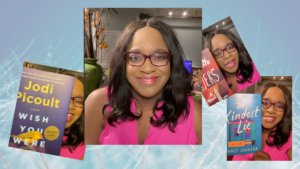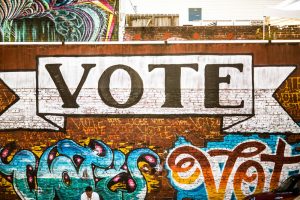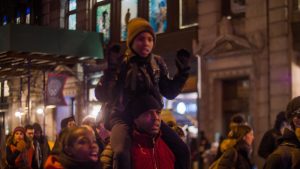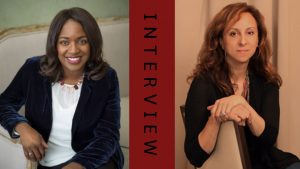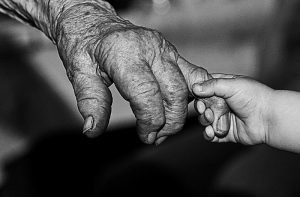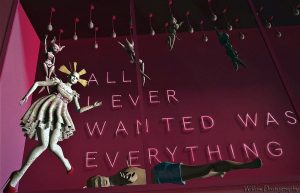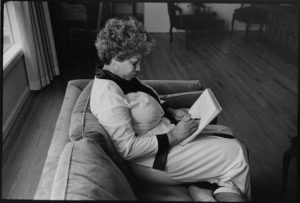Posts by Nancy Johnson
Getting a book-length manuscript to the finish line, polishing it, and launching it into the world require a single-minded focus–and a community of writers like this one to believe for us when the publishing journey gets rough. As a first-time author, I didn’t know what to expect. For a long time, no one was waiting for The Kindest Lie, so I had many years to stop and start, to play, and to delight in the fairy dust that is sometimes (if you’re lucky) sprinkled over a shiny debut. Then I signed a contract with William Morrow/HarperCollins for a second book, People of Means, which releases in February 2025. Anxiety took over, and I wondered if I could do it again. The second time around as an author isn’t easier, but I’m wiser and better prepared.
Here’s what I’ve learned:
You never master the craft. The book isn’t ready when you think it is.
After at least three years of writing workshops and several drafts of my first novel, I thought it was in good shape to send to agents in my quest for representation. Not so much. Following close to 100 rejections, I took a step back for a year-and-a-half and workshopped excerpts of my book at the Tin House Summer Novel Workshop and Kimbilio Fiction for African American writers. Then I engaged five writer friends to beta read for me. Only then did I get two offers of representation and choose the wonderful Danielle Bukowski of Sterling Lord Literistic. Subsequently, my fabulous William Morrow editor, Liz Stein, took my manuscript through three grueling rounds of edits.
When I began writing my second novel, I felt pretty confident that I knew what I was doing since I had done it once. Wrong! After sending early pages to Liz, I learned that the book needed a lot of work: structure, character development, relationships, motivations, and more. Under contract with a tight deadline, I didn’t have time to solicit beta readers or workshop the book. With Liz asking me lots of probing questions and helping me dig deeper, I revised multiple times until finally the book on the page came close to matching the vision in my head.
Life doesn’t pause for the publication of a novel. Don’t be afraid to ask for what you need.
I have a demanding day job leading corporate and internal communications for a large health care organization. Early in my writing days of my second novel, I got promoted to a director role and began leading a small team. The day job supports my writing habit, so no complaints there. But suddenly, I had more responsibilities, which made my writing time even more precious.
Soon after, my mother began to repeat the same stories and mail greeting cards more than once for the same occasion. A neurologist diagnosed her with Alzheimer’s, and I took on the role of caregiver. With a deadline for book two looming, I sold my mother’s house and moved her into a senior living community and helped her navigate this monumental life change. I desperately wanted to do it all, but I couldn’t. As a former journalist, I’m a stickler for deadlines but I knew I couldn’t meet this one. With great trepidation, I asked my […]
Read MoreFiction implies a made-up world, but for some novelists, their books are rooted in real events. WU contributing author Nancy Johnson offers examples of contemporary novels that explore some of our shared experiences. Check out her video here.
Do you center your own fiction around real-life events? If so, what have you learned in the process? As a reader and writer, how do novels help you make sense of the real world around you?
Read MoreThe R&B group Shalamar told us that love can be better the second time around, but I wonder if that’s true. When I met with my publishing house editor a few weeks ago, she said, “You know what they say about second books.” I wanted to respond, “No, what do they say?” But of course, I knew. The publishing world and readers love a debut—shiny and new—but by the time book two comes around, the bloom is off the rose. There are the inevitable comparisons, and authors desperately want to prove they aren’t one trick ponies and that their glorious debut wasn’t a fluke.
I had great success launching The Kindest Lie in February, catching the attention of journalists, booksellers, librarians, and trade reviewers. Then the intensity of publicity and marketing for my debut began to wane. The “best of” lists included new titles and everyone’s eyes had turned from winter toward summer and spring. Here, at the start of fall, I’m trying to make magic for the second time with a new novel, People of Means. So, I thought I’d share a few lessons I’m learning the second time around.
Take as long as you need to write the best book you can. I signed the contract for my second book the same month my debut released. A draft of my new novel would be due eleven months later. After taking six years on and off to write the first one, doing it again in less than a year seemed daunting. When I turned in the first 45,000 words to my editor to get a gut check on my progress, she could tell I was rushing to meet the deadline. Luckily, she gave me four additional months to work on it. The downside is that it will release several months later than we had planned. But that’s okay. I’m working a demanding day job, juggling promotional events for the first book, and writing a new novel. I need the time and mental space to focus on the second book. This will take the time it takes, however long that is.
Be flexible about the kind of writer you are. Writers and readers often ask about your writing process. Do you outline or does the story evolve more organically? In writerly lingo, are you a plotter or a pantser? For years, I have detested outlines and formulas that tell you the inciting incident must occur by the 25 percent mark. Building that type of structure around my creativity felt too confining and I resisted it. I told my editor all of this when we spoke recently. After listening patiently, she said, “I’m going to need you to outline.” I took a few seconds to absorb her words and then agreed. My author friend, Alison Hammer, shared her color-coded outline for multiple point of view, dual timeline novels. That’s what I used to craft a 10-page outline for People of Means that my editor loved. I don’t know if I can call myself a plotter now, but I had fun with it. None of the labels feel right anymore. Maybe I’m a chameleon who can adapt to multiple literary habitats. I still believe in the advice of esteemed author Andre Dubus […]
Read MoreNancy Johnson’s debut novel, The Kindest Lie, continues to build new audience–and fans–which means it continues to keep Nancy very busy! But she found some time between those demands and the demands of her day job to pull together a wonderful video for us this month on MASTERING CONFLICT.
Email subscribers, you’ll need to click through HERE to view it.
Enjoy!
Readers, how do you draw out and develop conflict in your stories? Have you ever flipped an idea on its ear in order to explore an unconventional or unexpected conflict choice?
Read MorePublishing a book is the scariest, most exhilarating thing I’ve ever done. It’s hard to believe that my debut novel, The Kindest Lie, will enter the world in less than a month. One of the best parts of this journey has been sharing it with Julie Carrick Dalton and Sarah Penner, writers who are also debuting this year. Three different publishing imprints. Three very different books. Yet one shared obsession when we meet every Sunday afternoon on Zoom: Will my book be successful? Have I done enough to give my novel the best shot at success? What is success?
I turned to a few authors I admire (many who debuted in 2020) to hear what they’ve learned along the way. These writers, like most, were incredibly generous with their wisdom. Whether you have a book coming out this year or someday (and you will), save these nuggets of insight and pull them out when you need them.
What I wish I had known…
“I wish I’d known how overwhelming marketing and promotion can be, immediately after your book is released. Readings, panel discussions, interviews, book clubs, social media posts—all of these take up an amazing amount of time, and it’s important to keep your writing going. So, the best piece of advice I can give is to set aside at least an hour a day to devote to your next project. You won’t be sorry!”
-David Heska Wanbli Weiden, author of Winter Counts
“I had such a great debut year and learned so much as a result. What I wish I’d known going into my debut year is to not be ashamed to ask for help. As Black women, we’re so used to carrying everything on our shoulders. This mind frame bleeds into everything we do. With publishing, you have a whole team behind you with years of experience in navigating the difficult terrain of editing, marketing, publicity, etc. That doesn’t mean you won’t have an opportunity to educate them on how to improve upon this in our evolving landscape between publishing and social justice; it does mean you can use their assistance to grow your platform and give voice to you and your art.”
-Catherine Adel West, author of Saving Ruby King
“As a decades-long career coach to lawyers, I pretty much “coached” the heck out of myself as my debut month approached. But the one thing that most surprised me was how quickly the satisfaction, for me, of a good review dissipated compared to the malingering of a bad one. For every author affected by bad reviews, there is one for whom negative criticism remains instructive and constructive. Sadly, I am not that author! So, having a handle on how criticism would resonate with me, and how to handle or even avoid it, was one thing I wish I’d known.”
-Natalie Jenner, international bestselling author of The Jane Austen Society
“I wish I had known how kind, generous and compassionate readers are. I have received many letters since the publication of The Mountains Sing and I count them among my precious gifts. I also wish I had known how busy the year could be. I have done more than 100 virtual events during the last nine months since my novel’s […]
Read MoreOn Election Day in 2008, my father was bedridden, his body ravaged by lung cancer. Luckily, I’d convinced him to vote early, and less than three weeks later, he was gone. Herman Hugh Johnson, a man who lived through the Great Depression, World War II, and Jim Crow, cast the last vote of his life for America’s first Black president.
I believe those of us whose ancestors have been denied the right to vote have a profound respect for its power. My debut novel, The Kindest Lie, opens with an election night watch party for Obama, and I tell the story of the promise and limits of hope during that era. As an author, I’ve struggled with how public to be about my own political activism. Who am I to speak out about politics? Will I alienate readers? What I’ve come to realize is that as a Black woman in America, my very existence is political. The stakes are too high for me to remain silent, so I’ll continue to use my voice as an author to encourage civic engagement and fight for freedom and justice.
That’s my story, but I wanted to hear from other authors. So, I asked them why they’ve chosen to be politically vocal and public about it. Here’s what they told me:
“I talk to my (social media) followers about the election as if we were sitting in a room having a conversation. I like to know what people are thinking, and I like to be heard.” – Maurice Carlos Ruffin, author of We Cast A Shadow
“I am a writer. It is something I’ve always wanted to do. Always wanted to be. I want to sell books. Lots and lots of books. And spend my days thinking about the next book I want to write. But I am a mother. Of two Black sons. The wife of a Black man. The grandmother to a tiny Black girl. This country has never GIVEN us anything. We have had to demand it, take it, die for it. The last four years have shown just how fragile these gains are, how easily taken away. If I can’t breathe the air, drink the water, have access to health care, marry who I love, make my own reproductive choices, or even be assured that my sons will come home at night, then having a bestseller is pointless. I DO care about book sales and alienating readers, but not as much as I care about living in a safe, clean, moral country.” – Rita Woods, author of Remembrance
Read MoreI’m sitting at my computer, but my fingers have lost their rhythm. They’re rigid. Mechanical. Impotent. It’s as if they know or have been here before and recognize the shackles that bound my Black ancestors are the same ones we wear today.
History lacks originality, always emerging in new skin encasing the same old terror.
I’m a writer and I’m supposed to bring eloquence to our coarse dialogue, a balm to our pain, beauty to our ashes. But there’s nothing new to say, nothing but what’s been said before and will be said again.
The world knows Kenosha, Wisconsin now, and news anchors nationwide stumble over its pronunciation. I grew up not too far away in Chicago, and my first job as a television news reporter was with a small, independent station in Kenosha. The town fell silent about six years before I moved there when the Chrysler plant closed, and thousands of jobs disappeared. I remember the gaping hole of despair in that community with an empty assembly plant sitting in the heart of town, its hum silenced.
I also distinctly remember one photographer at my station who greeted me loudly every time I entered the newsroom: “Here comes Nancy, there goes the neighborhood.” Attempting to sweeten his venom, he often chased his insult with a chuckle. Decades later, in that same town, seven state-sanctioned bullets pierced the back of Jacob Blake and I can’t say I’m surprised about the devaluing of Black life. It’s in the DNA of Kenosha and every other corner of America.
I’m formally and professionally trained as a writer, but my real education comes from living in a Black body. That daily reality informs what I write, how I write, and why I write.
In my fiction, Black bodies tense in police encounters and face oppressive systems. Yet those same bodies allow muscle memory to transport them to the hand-clapping games and double-dutch rope of their youth. They slam their cards and trash talk at the Spades table. They live. They’re more than their pain. And I’m uniquely suited to bring them to life on the page.
I want my writing to be a guiding light of education and understanding, a bridge connecting Black and brown people with our white neighbors. Writing can be a lofty, altruistic endeavor, but it can also be hazardous. Living while Black and then writing about it can be injurious. Truth-telling costs. The emotional labor of justifying my outrage and explaining my humanity is exhausting.
The importance of this work complicates everything. People say this is the largest multiracial movement for change ever in the history of America. After a string of deaths of unarmed Black people this year, white folks began reading about the Black experience in this country. That is a good thing. Yet for the Black writer, there’s a price to pay even for that good thing.
Read MoreThe first half of this year has been a monumental test in flexibility and resilience for authors and everyone in publishing. My debut novel, The Kindest Lie, will release on February 9, and that publishing date has changed several times as the William Morrow team attempted to position my book and others in their catalog for optimal success during these uncertain times.
Recently, I joined the team of A Mighty Blaze, a new organization that formed to help authors and books find their readers during this global pandemic. That’s how I met Laura Rossi who leads publicity for A Mighty Blaze. She worked in-house at top publishers, including Random House, Viking Penguin, and W.W. Norton before founding Laura Rossi Public Relations.
Laura was incredibly generous sharing with me nuggets of wisdom about promoting books during a pandemic, buying the right equipment for all the Zooming and Skyping, making publishing more diverse and inclusive, as well as pulling back the curtain on how some books get on those elusive, coveted “most anticipated” lists. I’ve edited our interview for brevity, but it was seriously so good that I wish all of you could’ve been on the phone with us.
Nancy Johnson: How has the pandemic impacted our ability to get our books out there into the world?
Laura Rossi: The first thing that happened to many books is their publication dates changed. That was a huge pivot for lots of authors, seeing their early summer pub dates move to fall or in some cases 2021. Summers work well for commercial fiction and beach reads, but it’s often not the best time for bigger books. That was a big trend I noticed. Authors had to give up control and let their publishers do what they thought was best in a very different world. Some books published and didn’t live up to expectations the authors had. Lots of books with March, April and May pub dates—copies were already printed and warehouses were still able to mail books—pubbed during a pandemic. But before May there wasn’t a lot of space for book coverage and some of those books that weren’t able to move didn’t get a lot of media or sales. However, if your book came out in hardcover during the pandemic, you still have a shot at pushing that paperback a year or more later. That second chance is encouraging.
NJ: How has publishing had to adjust now that we don’t have hand-sales in bookstores and in-person author events?
LR: All real-life events were paused or canceled, and many went online. Conferences, workshops, big in-person events like BookExpo and the intimate author lunch with someone from a magazine went away. Those schmoozing opportunities to hand-sell your book were gone. Some authors in the past would get pre-sales visits to New York to meet with booksellers. That personal touch has had to go virtual. People are not going on tours visiting 25 bookstores anymore.
NJ: This all sounds terrible. What do you tell your authors about how to pivot in this new environment?
Read MoreThe world has a way of shaping our literature, bending our writing to align with the arc of history. I began writing The Kindest Lie, my debut novel, in earnest during President Obama’s second term in office, a time when Americans were grappling with the promise and limits of hope. The racial and socioeconomic chasm of that period influenced my narrative and provided the cultural milieu for the book.
Soon, we’ll all emerge from this international health crisis into a new world order, a new normal defined by this global pandemic. I’m in brainstorm mode for book two, and I can’t help but think of how the times we are living in will inevitably change me and my approach to fiction. In these Darwinian days when we fear for our health and know that basic necessities like toilet paper are scarce, it becomes difficult to trust others. I predict that the issue of trust will appear consciously or unconsciously in our writing.
I’m wary everywhere I go now, my eyes narrowed and judging above my tight-fitting mask. Last week, I stood in the condiment aisle of the grocery store and glanced furtively at an unmasked man approaching with his shopping cart. Instinctively, I pivoted and leaned into the shelves of ketchup hoping he’d pass quickly without breathing on me. Unlike a presidential era that can on a good day be viewed as an academic exercise, what we’re living through now is an inescapable, seismic shift in our way of life. It will change us as people and it will change our fiction, too.
It won’t be as simple as modifying the fashion choices of our characters in contemporary stories by adding masks and gloves as accessories. Many of us are under stay-at-home orders and will cycle through quarantines for months and possibly years to come. As people, we crave human touch and for prolonged periods we will be starved of it. I wonder how isolation will manifest in our fiction and how deprivation will drive story. Maybe we’ll translate aloneness and loneliness in new ways on the page. But I also imagine we’ll think more creatively about connection after watching quarantined people in Italy sing their national anthem from balconies.
I like to think that I write books in a dream state, but now COVID-19 clouds my actual nighttime dreams. In a recent dream I lived on a college campus in a dorm where a classmate said something hurtful because of misinformation. I had misjudged him, too. We both realized our mistakes in this one charged moment and stood facing each other awkwardly, taking halting steps toward one another. Just as we were inches away from a forgiving embrace, we jumped back, suddenly aware that we were about to engage in the most harmful behavior: hugging. That fear will find its way into my writing and the psyche of my characters, I’m sure.
I don’t write romance, but this virus will change the love story, or at least the meet-cute part. In the past, a realistic plot might have involved two people asking to see each other’s HIV status as proof they were “safe.” Now there’s a new layer of criteria for safety that could include a rapid test for COVID-19 and […]
Read MorePeople often ask me what I’m reading and sometimes I forget. What’s the name of that book again? But then some book titles stick to my brain like a gecko clinging to a wall. They take root inside me and often the book itself proves to be just as unforgettable.
In brainstorming the title for my own debut novel, I turned to experts who advised that authors should keep titles short for a variety of reasons: Something short will be easier for people to remember. Fewer words will fit more neatly on the book jacket and not require a small, unreadable font. But like most advice, it depends.
My favorite title these days consists of eight words. You read that right. Eight. Yet it sounds cool as hell when I say it aloud: Hitting a Straight Lick with a Crooked Stick. Zora Neale Hurston’s story collection centers on love and migration. The rhythm and flow of that title hits my ear just right. Genevieve West, who wrote the book’s introduction, says there are many ways to understand the title, one being that it refers to the ability of black people to endure and overcome challenges, or as the old folks say “make a way out of no-way.”
Then there are the one-word wonders that pack a world of meaning in an astonishing economy of letters. I devoured Heavy, the memoir by Kiese Laymon. In one small word, he interrogates so many aspects of a heavy life: blackness, body weight, secrets and lies, America’s sins, and the many ways we hurt others and ourselves. In her runaway bestseller Becoming, Michelle Obama uses the title of her memoir to explore how our personal growth has no finite destination; instead, we’re always learning and evolving. The title sparked a mini-movement, too. Using the hashtag #IamBecoming, readers took to Twitter to share their personal journeys of becoming.
The scope and breadth of a book title can intimidate us as the authors of the work. How expansive can it be? Am I being audacious in my choice of a title? When I studied novel writing with Tayari Jones at Tin House, she discussed the difficulty she had in choosing the title of her latest novel. In an offhand remark to her editor, she suggested An American Marriage but quickly dismissed the idea because it sounded like a book about navel-gazing white people in Connecticut, not a novel about a black couple grappling with the fallout of wrongful incarceration. It was her mentor, Pearl Cleage, who reminded her that black people are indeed American and that the prison system responsible for upending her protagonist’s life is a uniquely American institution.
Some of the best book titles turn popular sayings on their head and imbue them with new, unexpected meaning.
Read More“Okay, I’m a little, teeny bit jealous of a few writers,” I admitted to another debut author via the anonymity of Facebook Messenger.
“I am SOOOO jealous,” she typed back.
Behind the confessional curtain of social media, we could whisper that ugly truth. We even conceded we’d been jealous of each other from time to time. Once I began opening up to more of my writer friends, many revealed mild annoyances, burning secret resentments, and even crippling envy. Still, everyone stressed they were extremely happy, thrilled, and overjoyed (substitute other convincing superlatives) for the success of other authors.
One of the most insidious sources of this madness has to be the list, which is lauded as the holy grail of success by enough writers for it to be stressful. Well, all the lists. This time of year, almost every publication from O, The Oprah Magazine to The New York Times and PopSugar releases its list of the most anticipated books for the new year. The timing couldn’t be worse because those lists come on the heels of year-end wraps of the best books from the previous year. Every time a new list emerges, a collective, congratulatory whoop rises in my author communities and I believe it’s genuine. Still, amid all the fanfare, I know authors scan those lists, starry-eyed, looking for their own names.
Lists are not an immediate consideration for me right now. I’m in the early stages of the publication process completing a second round of structural edits for my novel, which doesn’t release until early 2021. But anticipatory angst is real, if a bit irrational, and I sometimes envy authors who make lists I’m not even eligible for, wondering if my own trajectory will be on par with theirs.
One winter afternoon I spent hours poring over a website called Edelweiss (totally unrelated to The Sound of Music), where you can request advance reader copies of books and browse publishers’ catalogs. It’s still early so my book doesn’t appear in the database yet. Still, Edelweiss offers a preview of what’s happening for other authors. I try to manage my expectations.
Be cool. Just be cool.
Still, I couldn’t help but notice the publicity and marketing plans for the most buzzed about authors, which include branded influencer packages, national author tours, New York media lunches, and pre-pub cocktail parties. Some authors whose publishers are committing few if any resources to boost their books often look at those plans with envy. For me, there’s this bubble of hope, cautious optimism coursing through my veins, as I imagine all that hoopla for my novel someday.
Read MoreI get this question all the time as if my book were a souffle or cake in the oven. The timer has been set. Someone else has determined the appropriate temperature and time for baking. Trust me though. Just like your baked goods, your book will fall if you take it out too early.
Cooking requires patience and so does novel writing. I like to think of my book as a dish that needs to marinate, soaking in its own juices long enough to absorb everything and maximize its flavor.
Beginning writers sometimes ask how they’ll know when their book is done. My response to novices is that your novel is rarely ready when you think it is. How can it be when you’re still learning the basics of craft and discovering your story?
In an industry where it takes forever for things to happen, we must subdue the urge to rush. I queried literary agents two years ago when I thought my novel was ready. It wasn’t and I received many rejection letters to punctuate that fact. It’s tough to take your time though when others’ expectations buzz in your ears. Or when you’re surreptitiously eyeing someone else’s paper. I get it. Our writing contemporaries seem to be leapfrogging over us by writing two books simultaneously, securing agents and book deals overnight, and publishing new work while we hunch over our laptops and notebooks, toiling in the trenches.
A year ago, when I placed in a writing contest based upon an excerpt of my novel, a former work colleague grossly misunderstood the meaning of this honor. On Facebook she inquired as to whether my novel would be available for her upcoming book club meeting in two months. I laughed. I almost cried. I felt like a failure or at best a fraud for having to say no, I’m still working on the book. She wasn’t the first to inquire. People often look at me in amazement or perhaps pity, shaking their heads, saying, wow, you’ve been writing that book for a long time.
My critique partner and beta readers often lament that I’m a perfectionist, laboring (read: obsessing) over every scene and every word much too long. Maybe they’re right. There is a point at which we must let go and let our books fly. But before then, there’s revision and revision and more revision.
Daily living is part of the revision process. Sometimes we haven’t experienced enough to bring the right emotions to the page. It wasn’t until I’d lived years without my beloved father on this Earth with me that I understood the impact of grief and how it shapes my perception of the world. It wasn’t until my father died that I began to inspect my mother’s face and movements so closely, memorizing them so I wouldn’t forget any details. I explored loss and memory in my novel, The Kindest Lie, through Midnight, an 11-year-old boy whose mother died, as well as through Ruth, my protagonist, who lost her grandfather when she was a young girl.
While the novel is always your story and yours alone, revision shouldn’t be a solitary exercise.
Read MoreWe all remember where we were when the collective community celebrated or mourned something momentous. Last week, I was sitting in a classroom at Howard University during a Hurston-Wright workshop for Black writers led by bestselling author Nicole Dennis-Benn. As I read aloud the words I’d just composed for a writing prompt, one of my classmates gasped. Then there was a knock at the door. We’d lost our literary light, Toni Morrison.
During my sophomore year at Northwestern University, Professor Leon Forrest assigned Beloved and Song of Solomon as required reading for our literature class. I struggled with language too dense and ideas too complex for my immature imagination to hold. Sadly, I admit I didn’t pick up Morrison’s work again until years later when I’d done enough living to understand how she’d held a mirror up to my own interior life. She gave me permission to write boldly and unapologetically about blackness while centering no one’s gaze but my own.
As writers, we learn craft best by reading works from authors we admire. I studied Morrison’s debut novel, The Bluest Eye, and re-read it many times while writing my own debut. In simple terms, it’s the story of a dark-skinned Black girl’s desire to have blue eyes, but on closer examination, it’s about the roots of racial self-loathing. This book, like all of Morrison’s works, is a master class in storytelling.
Opening Lines
Quiet as it’s kept there were no marigolds in the fall of 1941. We thought, at the time, that it was because Pecola was having her father’s baby that the marigolds did not grow.
That’s how Morrison begins The Bluest Eye. Right away, we want to know why some plants or people flourish while others don’t. The author doesn’t withhold information or try to be coy and mysterious. In the first paragraph, we learn that the protagonist has been the victim of pedophilia. That’s the big plot point and she gives it to us in the first two sentences, yet we still want to read on for hundreds of pages. Also, on page one, the narrator dares to explain why this story structure is brilliant:
There is really nothing more to say—except why. But since why is difficult to handle, one must take refuge in how.
In that opening, Morrison intrigues us, establishes an emotional connection, and assures us we’re in capable hands as she takes us on the journey of Pecola’s story.
Characterization
The most memorable characters stay with us long after we’ve finished the novel because they’re complex and multi-dimensional. We may not like them because they’re unlikeable, but when they’re well-drawn, we understand them and empathize. Let’s look at Cholly Breedlove, the abusive, cowardly antagonist who beats his wife and impregnates his daughter.
First, the surname Morrison chose for this character begs attention. It wasn’t until I finished the novel that I realized that Cholly couldn’t “breed love” because he’d rarely experienced receiving love. Presenting Cholly Breedlove as merely a hateful predator would have been too easy and simplistic. We’re all more than the evil we inflict.
Morrison expertly wove in backstory where we learn that Cholly was abandoned by his mother and rejected by his father. When Cholly was just a boy getting to know a girl he liked, still fumbling and awkward […]
Read MoreWe often live in different communities and socialize in separate circles, and yet when it’s time to write our novels, a few daring souls attempt to cross the racial divide. As a Black writer, I must say it’s sometimes awkward at best.
The publishing industry has been vocal in recent years about wanting diverse books that reflect the world we live in. This has sparked a lot of discussion in writing communities, including this one. I’m often curious: Do these writers want to include Black characters because it will make them more marketable or do they see this as a moral act, a way to do the right thing? Is this really the story they want to tell?
Several white writers have asked me to review excerpts of their novels that feature Black characters. They approach me well-intentioned but also apprehensive about getting it right. They fear doing something stupid (read: racist) on the page and that’s a valid concern. Mistakes have been made in literature, television, and film. (Note that this was an intentional use of passive voice to avoid outing the guilty.)
When I review the work of white writers, I often find common missteps regarding Black characters. The prevailing wisdom for anyone writing characters outside of their own experience is to research and do your homework. While due diligence is always important, there are other basics that often get missed.
Slang and broken English should not be the dialogue default for Black characters.
I’ve read too many novel manuscripts in which Black characters are speaking Ebonics and using poor grammar. I cringe because it’s often offensive caricature. Black people are not a monolith and our language patterns are as diverse as we are.
When you try to emulate language that’s embedded in a culture you don’t know or understand, it’s tricky to pull that off in a way that isn’t seen as demeaning and derogatory. Now, just to confuse everyone, I want to share an example from the award-winning memoir Heavy, by Kiese Laymon, a Black author and English professor at the University of Mississippi who breaks those rules, because he can. In this passage, he describes bantering with his eighth-grade classmate in Catholic school:
La Thon cut up his pink grapefruit with his greasy, dull butter knife. “These white folk know we here on discount,” he told me, “but they don’t even know.”
“You right,” I told him. “These white folk don’t even know that you an ol’ grapefruit-by-the-pound-eating-ass n****. Give me some grapefruit. Don’t be parsimonious with it, either.”
In that passage, Laymon and his friend are intentionally practicing their vocabulary words (parsimonious) in a way that’s relevant and connected for them culturally. If you’re not Black and that’s not your experience, don’t try that on the page.
The primary purpose for Black characters should not be to support white protagonists.
We often see Black characters in novels playing the role of the sassy sidekick or best friend. As marginalized people, we consider ourselves “the mainstream” and want to be centered in stories. We shouldn’t be relegated to holding the white protagonist’s hand and shepherding her through her crisis.
You may have heard of the Magical Negro trope in which the wise, sometimes other-worldly Black person enters the white character’s life just at the […]
Read More

